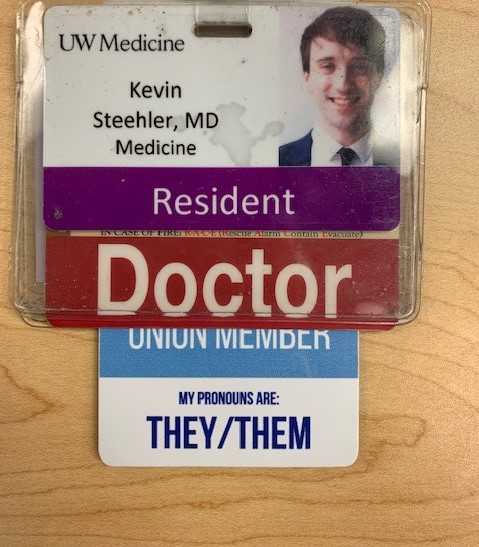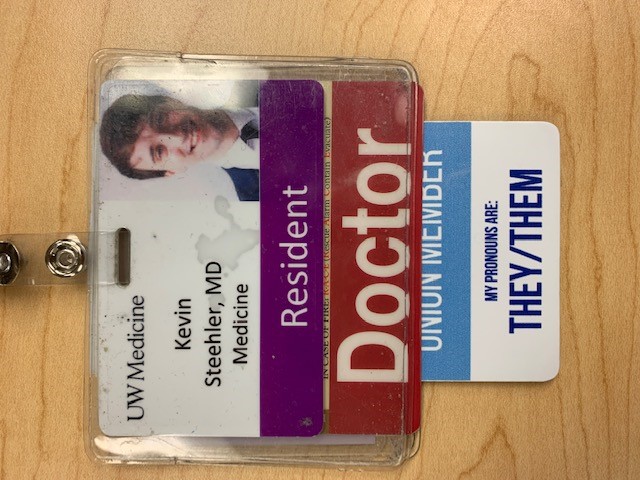
Discussing pronouns between patients and providers
“Hello, my name is ____ and my pronouns are ____.”
Introductions at the beginning of a patient encounter set the stage for the rest of the patient’s visit or stay, and are used to establish a mutual respect between patient and provider. The phrase above is a common introduction used by UW Medicine providers when meeting a new patient, and is usually followed by inquiring the same from the patient.
By introducing ourselves to all patients using our name and our pronouns, we demonstrate that this is a place that values and respects personal identity and we care about the identities of the person before us.
National data show that many trans and gender diverse patients have avoided or delayed accessing medical care because of barriers within the healthcare setting, including but not limited to experience with or fear of refusal of care, harassment, and lack of provider knowledge. In a separate study, a third of patients report they have had negative experiences in a health-care setting due to their gender identity.
All providers and staff throughout UW Medicine are dedicated to the institution’s mission and values to always show respect for all patients and striving to incorporating inclusive medical education, particularly around the needs of trans and gender-diverse patients. Institution-wide practices that validate gender identity, such as providers displaying their own pronouns, have positive implications for both patients and clinical staff. 
A recent initiative by the Resident and Fellow Physicians Union seeks to make pronouns a visible and universal aspect of the clinical setting. Union members were able to pick up badge that indicated their pronouns to be worn regularly alongside their ID.
"The pronoun badges have made queer providers in medicine more visible and we are able to bring ourselves and our identities to work more readily by having the option to wear one," said Dr. Kevin Steehler, internal medicine resident.
"Many people may not have even thought about what are their own pronouns are before picking out their badge. It has been a positive for all parties involved and has even helped teach some patients and providers on why pronouns matter.”
Steehler serves as Lead Negotiator of the Residents and Fellow Physicians Union and was involved in the rollout of the pronoun badges. They are also co-chair of the Department of Medicine LGBTQ Council.
Providers displaying their own pronouns can help normalize the practice of discussing pronoun use for all patients, and potentially bring comfort and validation to patients who may have felt uneasy about this aspect of their visit. Providers are also better able to easily convey their own identity when meeting a new patient or colleague within the medical center.
“The use of pronoun badges is a simple, but large step in the right direction to making sure that everyone in the Department of Medicine and in the UW healthcare system is able to feel respected and addressed appropriately,” says Dr. Steve Disharoon, clinical assistant professor (General Internal Medicine) and co-chair of the Dept.’s LGBTQ Council.
“Visibility is important!”